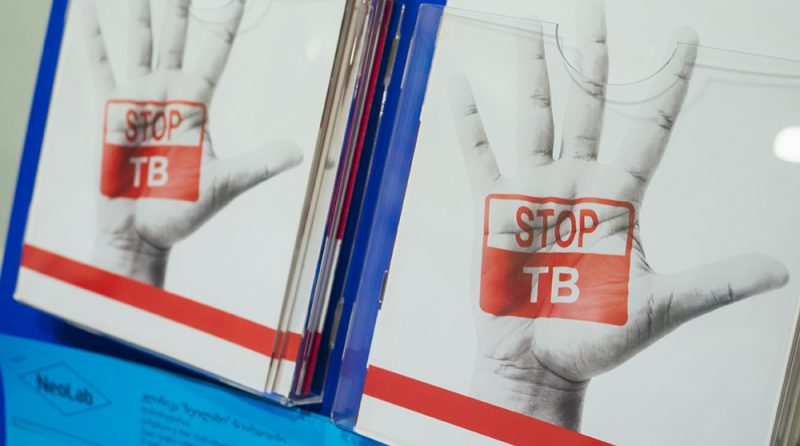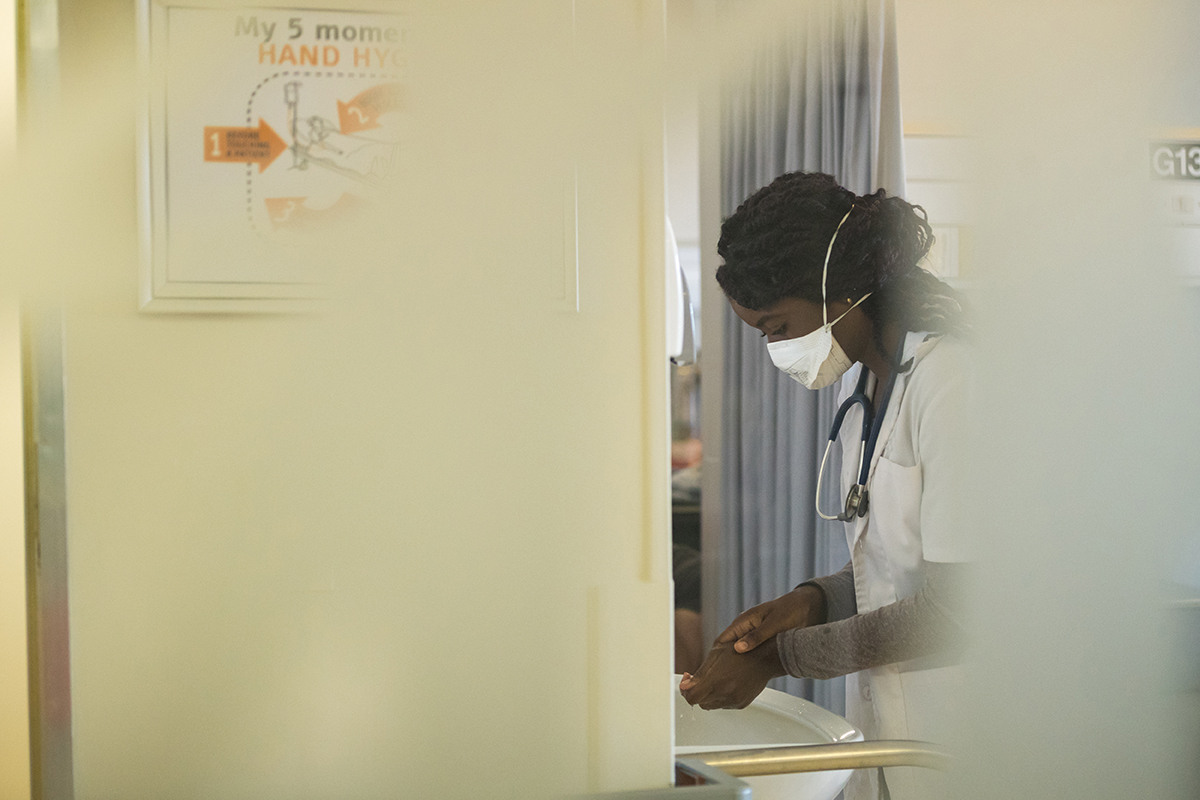- Bedaquiline (BDQ) is a core component of an ‘all-oral’ solution to multi-drug resistant TB (MDR-TB), and is recommended by the World Health Organization.
- Treatment time is significantly less compared to older, injectable treatments for MDR-TB. This is around 9-12 months, compared to two years, and can be largely administered at home instead of hospital.
- Monopolies on BDQ are preventing access to improved TB treatment.
Being forced to remain on outdated treatment both reduces a patient’s chance of recovery from TB, and exposes them to greater risk of contracting COVID-19. - Activists in Brazil and Thailand have challenged unmerited patents, filed for by Janssen Pharmaceuticals.
- Four patent applications have been opposed across Thailand and Brazil – on the same drug, and which is already patented.

Tuberculosis (TB) is the leading infectious cause of death globally, claiming 1.5 million lives a year, equivalent to 4,000 people every day.
Treatment for TB has historically been a long, and often traumatic, process. Multi-drug resistant (MDR) patients can face two years of recovery, with a large part of that spent in hospital. Injectable drugs are painful and can cause serious side-effects, including irreparable hearing loss.
Bedaquiline (BDQ) is central to newer, all-oral, treatment regimens for multi-drug resistant (MDR) TB. All patients deserve the best medical solutions available and to be able to continue with their lives during their treatment, outside of hospital.
The need for BDQ-based treatment was clear prior to the COVID-19 pandemic. However, the COVID-19 pandemic has amplified the urgent need for people to receive this less intrusive, and more effective treatment option. All-oral regimens would reduce the need for hospital visits at a time when health systems are overwhelmed.
There is no data to suggest people living with TB are at a higher risk of contracting COVID-19, however frequent hospital visits, along with the travel involved, increases the potential to come into contact with the virus. This is a cause of anxiety for millions of TB patients. It is also yet unknown, but expected, that people with TB may have poorer outcomes if they do contract COVID-19.
Protect patients not patents

Front line healthcare worker. © iStock by Getty Images/stockstudioX
“Bedaquiline is a key drug to fight MDR-TB and Brazil must make it available in the public health system now. Especially in the context of the COVID-19 pandemic this is urgent, since people with TB are at severe risk,” said Carla Almeida, Brazilian TB Community Advisory Board (CAB).
Brazil and Thailand feature among the 30 countries with the highest burden of TB. They face a dual burden, of high prevalence and high drug prices.
A staggering eight patents have been registered for BDQ in Brazil. The main application was granted, which gives Janssen a monopoly until 2028. This is already too long for Brazilians to wait for affordable TB treatment.
The seven secondary patent applications are all pending. Associação Brasileira Interdisciplinar de AIDS (ABIA) has filed an opposition on an application referring to the compound (bedaquiline fumarate), compositions, process of preparation of the salt and the composition and use. If this specific patent were to be granted it would extend Janssen’s monopoly by eight years, until 2036.
Similarly in Thailand, one patent is already granted. This is due to expire in 2023. Janssen is seeking to ‘evergreen’ its patent position on BDQ by filing four secondary patents which if granted would extend the block on competition.
AIDS Access Foundation (AAF) in Thailand has filed oppositions on three of these. There are numerous grounds for the oppositions as the applications are clearly unmerited. While the grounds for opposition vary and overlap across the three, all three applications lack the required novelty and innovative step and so Janssen’s applications do no meet Thailand’s patentability criteria.
Frivolous patents
“BDQ can improve efficacy of TB treatment and save the lives of thousand patients who suffer from MDR-TB. We found that a key patent on BDQ will expire mid-2023, after which, local manufacturers would be able to produce this life-saving medicine. However, this will be impossible if the other four patent applications are granted and the monopoly period extended. We are fighting against these frivolous patents to ensure that the access won’t be blocked or delayed,” said Chalermsak Kittitrakul, AIDS Access Foundation’s Chief Executive in Thailand.
BDQ price barriers
Bedaquiline is not yet offered as treatment in Brazil. It was approved by the health authority (Anvisa) in February 2019, but has not yet been incorporated in the public health system. This means, that as yet, there is no maximum price agreed.
The technical commission responsible for incorporation of health technologies (CONITEC) is over one year late in delivering its analysis for BDQ. Treatment activists deem this “an outrageous delay” when people living with TB urgently need simpler and more effective treatment options.
In Thailand, people living with MDR-TB receive treatment via Global Fund supported programs. The price is approximately $900 (USD), compared to Janssen’s proposed price of $1,340 per person. The AIDS AccessFoundation has advocated for BDQ to be included under the country’s universal health coverage scheme, but the price has prevented it being approved. “Even with Global Fund support there is still a treatment gap, if the Fund phases out its programs is Thailand, access will become even more limited,” said Kittitrakul.
The drug can be produced more affordably. The price of BDQ for six-months of treatment is $400 for countries eligible to purchase the drug through the Global Drug Facility, an organization run by the Stop TB Partnership that provides drugs for TB to low and middle income countries. Some people need up to 20 months with the drug, which increases the price to $1,200. However, researchers at the University of Liverpool calculated that the drug could be priced at US$ 0.25/day if at least 108,000 treatments were sold a year.
The demand exists. In Thailand alone, there were 108,000 new cases last year, exactly the number required for Janssen to produce in bulk, both affordably and profitably. Yet, in Thailand, 46,000 people are awaiting treatment, 3,900 of which are patients with MDR-TB.
In Brazil 73,864 new TB cases were diagnosed in 2019. For people with MDR-TB, just 55.7% of people completed treatment and were cured (latest figures 2017).
“The public contributions to the development of BDQ should ensure that this drug is accessible to all patients who need it in TB programs worldwide, especially in the countries most affected by the disease,” said Pedro Villardi, coordinator of the Working Group on Intellectual Property (GTPI) in Brazil. “We must not allow the pharmaceutical company Johnson & Johnson – or its pharmaceutical arm Janssen – to extend its monopoly on BDQ through evergreening strategies.”
For more information or interviews please contact:
- In Brazil: Pedro Villardi, coordinator of the Working Group on Intellectual Property (GTPI).
[email protected] - In Thailand: Chalermsak Kittitrakul (Jockey), AIDS Access Foundation’s Chief Executive in Thailand.
[email protected]
References for the patent applications being opposed:
- In Brazil: PI0719693-8 / WO2008068231
- In Thailand: 0501002434; 0701006189; and 0501005795.
RELATED CONTENT:
A luxury travel writer’s journey through Ukraine’s health system as a TB patient
COVID-19 drugs can be made for $1 a day




